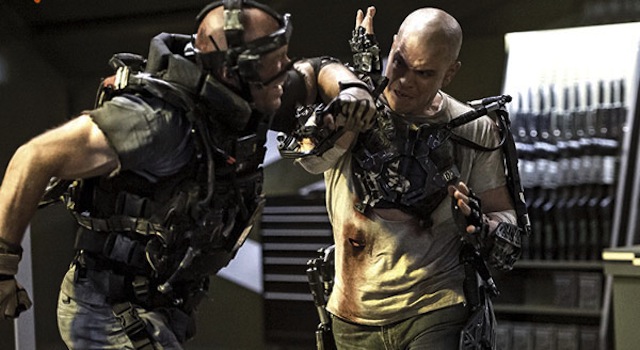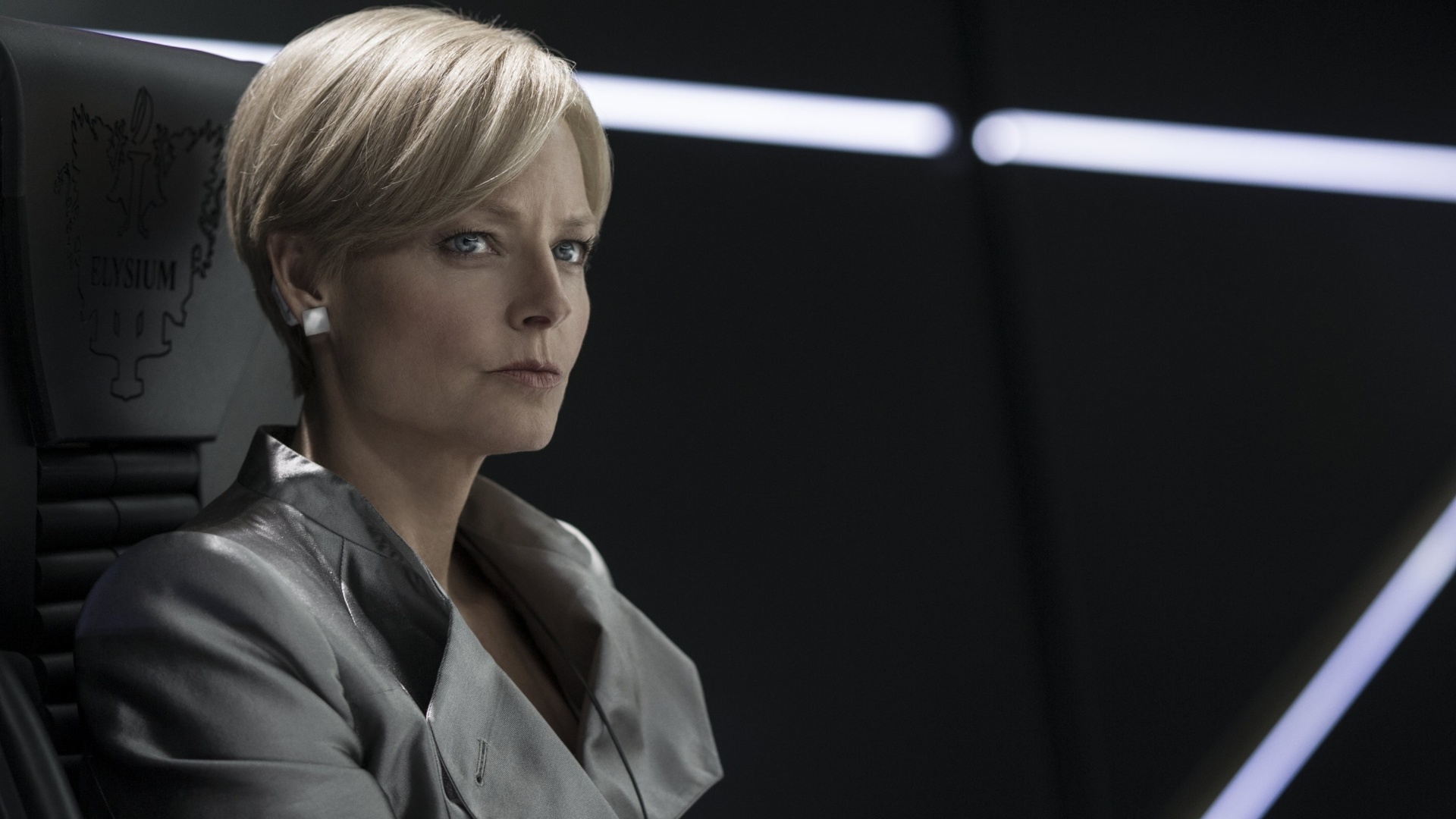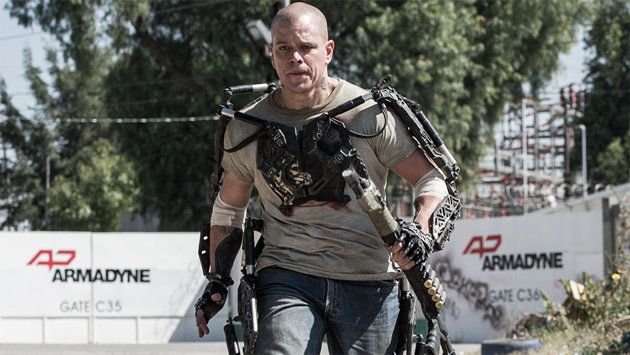|
Elysium is
built on a promising setup that held me in anticipation, only to fizzle
out
into a series of generic setpieces that downplays the smarts of this
sometimes exciting science-fiction thriller. It's a good idea still
waiting
to happen
but ultimately a disappointment bred from a weak screenplay,
questionable
casting and a lack of ambition.
District
9 director
Neill Blomkamp helms the film. He was
born in Johannesburg, South African in 1979 during apartheid. After
making a
number of short films about South Africa that featured spectacular use
of CGI
drawn robots, he was set to direct a film version of Halo, one of the
most
popular video games of all time, with Peter Jackson as a producer, but
the deal
fell through.
It
is hard to read
what the filmmaker is trying to achieve now. His mother has said that
her
profession of running an interpretation company for the United Nations
has
influenced her son. Yet the thirty-three year old director believes
that films
are not impactful. "Anybody who thinks they can change the world by
making
films is sorely mistaken," he commented.
He's
wrong. Cinema's
influence is limited by how ambitious and how unnerving a filmmaker is
willing
to be. Films can teach and educate people about the world and different
cultures. Mainstream blockbusters choose not to aim that high. Film
critic
Roger Ebert also argued films can either be a positive or negative
influence on
society.

District
9's limitations
were forged by a partition between
form and content. It visualised a compelling dystopian world where
aliens were
the hunted, a discriminated life form. Yet the film resolved itself
through
action rather than thematically supporting the world.
The
same is true of Elysium.
The visual details are
outstanding. The film opens over the city of Los Angeles in the year
2154 in
what could be the slums of South Africa. Overhead helicopter shots
photograph
the dusty wasteland - a result of overpopulation we're told. Blomkamp's
handheld cameras shakily take us around the slums and gang filled
streets that
are patrolled by robot police. The atmosphere, with Mexico passing for
LA, is
thrilling.
Juxtaposing
the slums
is the world of Elysium, a space station that has been constructed for
the
wealthiest people from Earth. There are mansions and gardens and
special
medical bays that can instantly heal people. The colours are more
sanitised but
also harder and colder. The soundtrack plays Bach's Cello Suite No. 1
because
what else would the wealthy listen to? Refugees arrive by spaceships,
seeking
to use the medical equipment if they aren't mercilessly shot down first.
The
film isn't subtle
about its socio-political concerns, but the two contrasting worlds are
stunningly visualised and the thematic outset of immigration and
segregation
has rarely felt timelier. The first half of the narrative is promising
too. Matt
Damon plays Max, who was raised by nuns but grew up to become a
thieving
convict. He now works in a factory run by John Carlyle (William
Fichtner).

One
of Max's dreams
as a child was to make it to Elysium but this seems unlikely because
bureaucrats like Delacourt (Jodie Foster) are intent on keeping the
immigrants
out. She uses a crazed mercenary on Earth named Kruger (Sharlto Copley)
to help
shoot any immigration aircraft down.
After
having his arm
broken by a robot, Baldy reunites with his childhood friend Frey (Alice
Braga),
who is a working nurse and has a sick daughter who she'd like to take
to
Elysium. Later, Max suffers a radioactive accident in the factory he
learns he
only has five days to live. Needing to find a med bay to heal, he
crawls
towards a local crime boss for help and is offered him a job: a heist
to steal
some important information off Carlyle's very person.
The
heist is the
climatic high-point of the movie, an exciting, viscerally staged
standoff
against a number of robotic enforcers. From this point onwards the film
struggles to sustain an engaging through line and doesn't fulfill the
initial
promise of the themes. The second half of the film is disposable,
reduced to
running and hiding, predictable corridor shootouts and a dully
conventional
boss fight, capped off by a laughably simplistic ending.
Three
or four threads
converge into a soulless action structure and the casting and the
characters
are treated with irrelevancy. Blomkamp wanted South African rapper
Ninja and
then Eminem for the part of Max. They would have been grittier and
suitably
uglier leads. Damon is a fine character actor but he's miscast playing
a
tattooed ex-con. After having armour surgically fused onto his body
you'd think
Max would have a greater reaction than saying: "What did you do to
me?" Jodi Foster plays her character as suitably merciless and uptight
but
the role lacks additional shades. Copley is appropriately scruffy and
intimidating
as the psychotic and sometimes frightening mercenary.

In
Elysium corporations have built an
amazing world, but withheld it from those who dream bigger and could
truly use
its amazing technology. If the impoverished were to live on Elysium and
have
access to this healthcare technology would it be reduced to another
wasteland?
Films are able to change the world and influence people when they test
our
beliefs and create indistinguishable lines between the right and wrong
answers.
Wealth does not simply segregate class - it's a limitation of the
imagination
too.
|